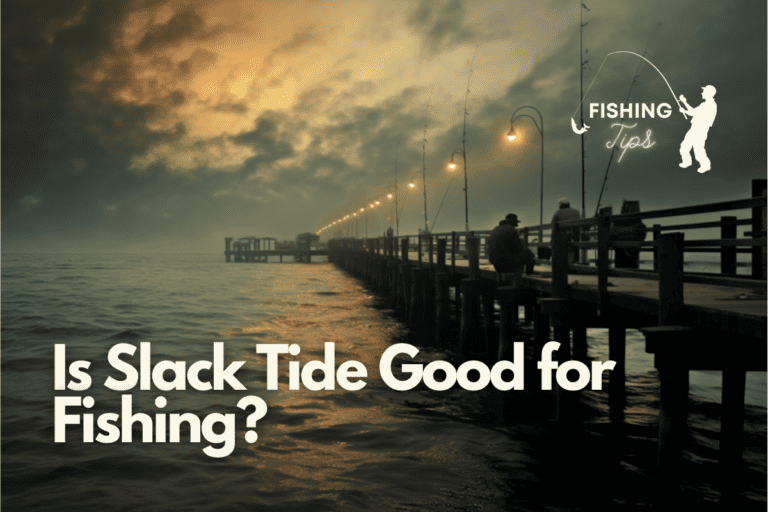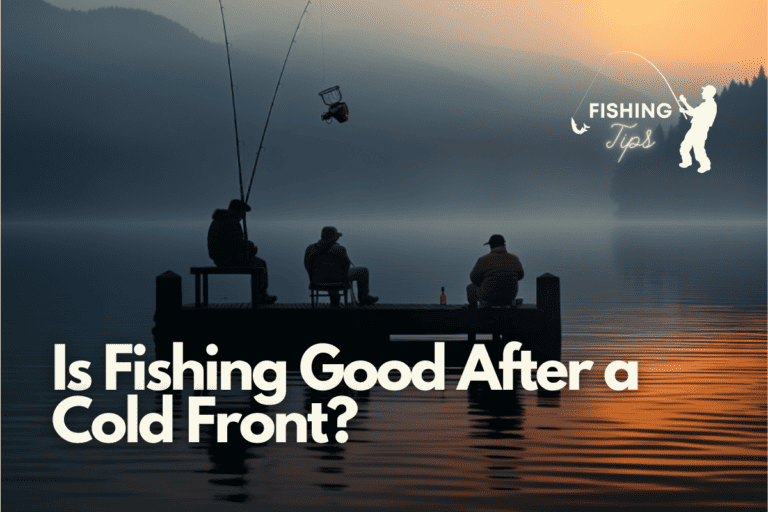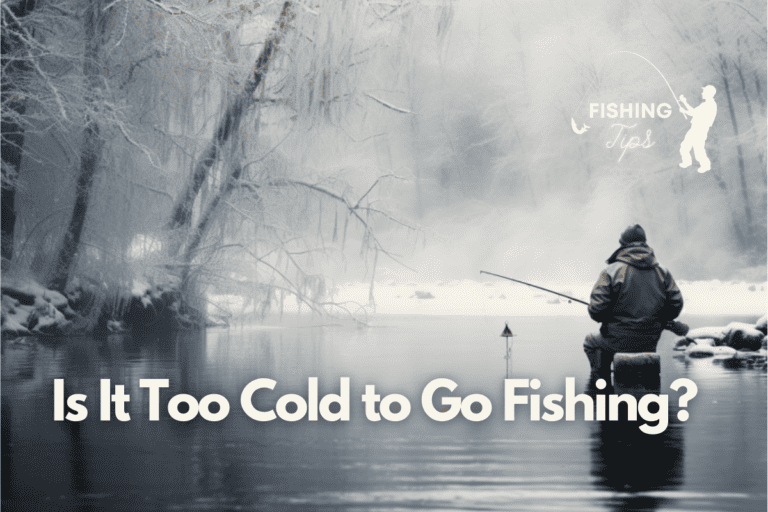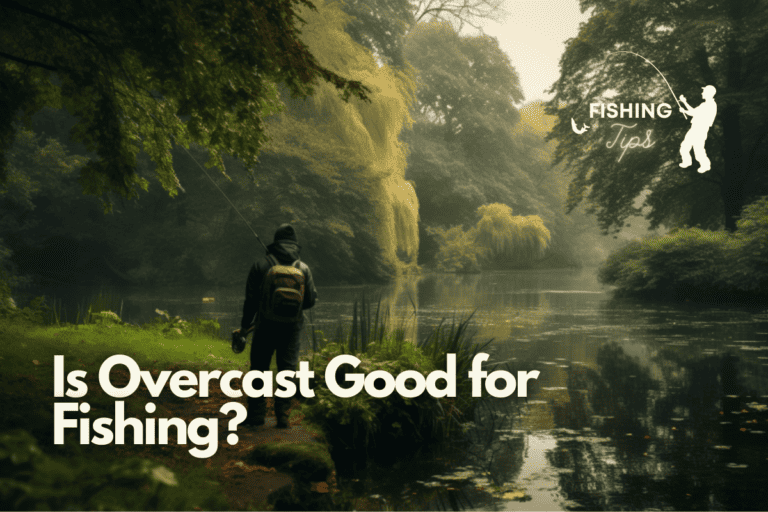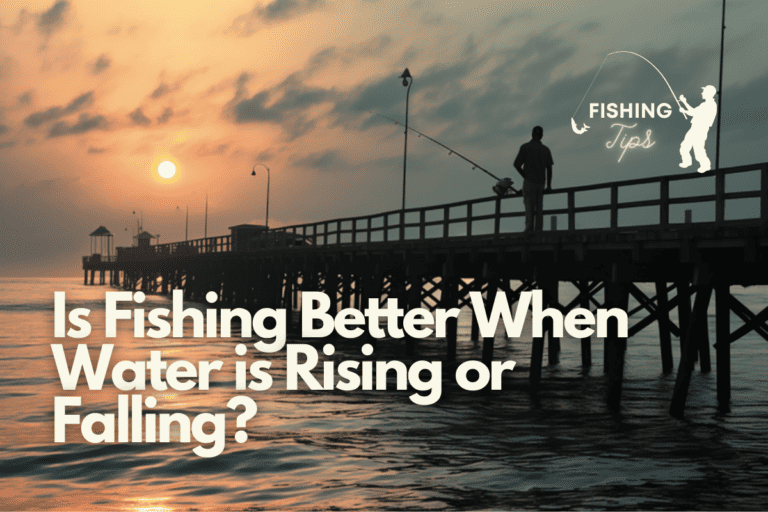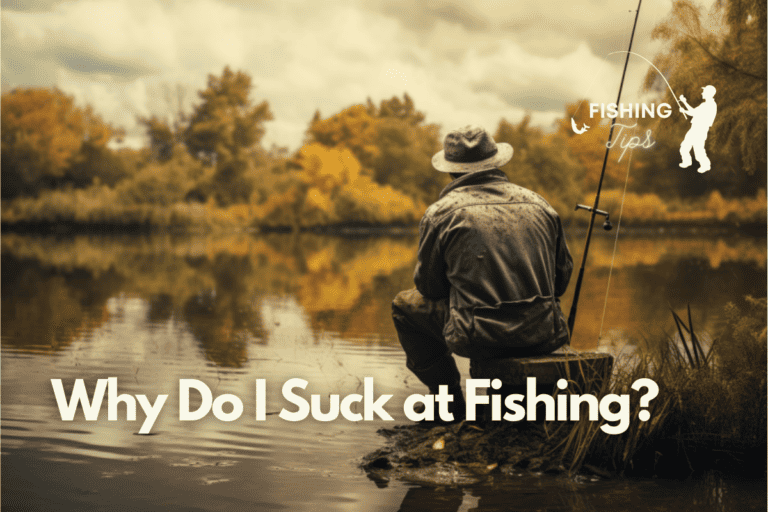Is Fishing An Expensive Hobby? How Much Do You Have to Pay
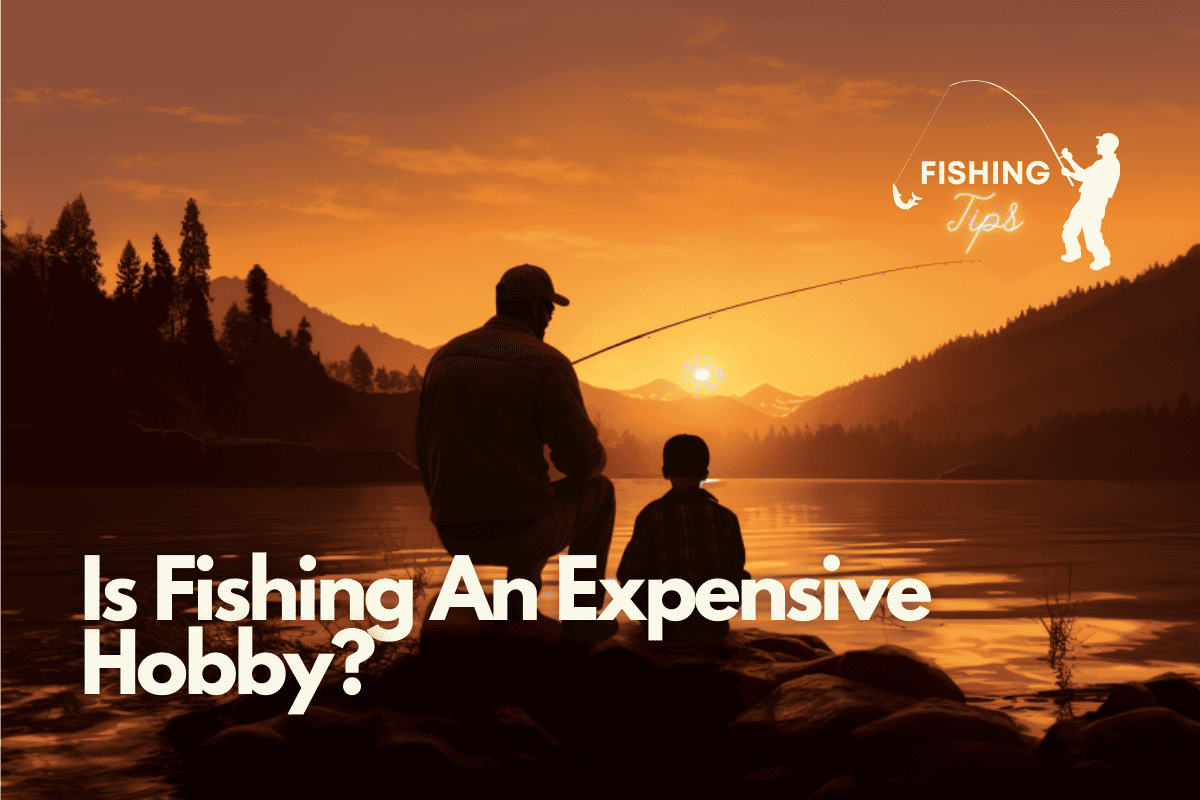
Sitting on a quiet lake shore, I remember my time as a child holding a fishing rod handed down from my father, the rough wooden handle etched with memories. To me, it was more than just a rod; it was an opportunity to learn patience, a chance to connect with nature, and a means of bonding and making memories.
I fished with the simplest of gear, often using worms I dug up from the backyard, fishing in local ponds.
Is Fishing An Expensive Hobby?
Years later, as I sat on a boat fishing in saltwater using a fancy fishing rod and artificial bait, I couldn’t help but reflect on how fishing, a sport that can be as uncomplicated or complex as one makes it, often poses a question to beginners and enthusiasts alike – Is fishing an expensive hobby?
The answer, in truth, is both yes and no, ranging from being very affordable to expensive, with costs varying based on gear, location, and type of fishing.
Fishing License Costs
Fishing involves more than just tossing a line into the water. Before it all starts, a crucial step in responsible fishing is getting a fishing license. The license is not just a slip of paper or a card; it’s a tool that helps in the conservation of our marine and freshwater bodies.
Each fishing license, typically costing between $20 and $40 annually, plays a significant role in maintaining fisheries as the funds often go into resources that conserve marine life and habitats. Depending on where you fishing, freshwater or saltwater, some states may also require separate licenses for freshwater and saltwater fishing.
Fishing Rod, Reel, and Line Expenses
Choosing the right fishing rod and reel, can remind you of selecting a wand, much like in the wizarding world of Harry Potter – it must feel right to you. While more advanced or professional anglers may reach for top-shelf rods that can exceed $300, beginners can easily start their fishing journey with simpler rods around $40. Spinning rods, in particular, are popular due to their functionality and cost-effectiveness.
| Item | Low-End Cost | High-End Cost |
|---|---|---|
| Rod | $40 | $300+ |
| Reel | $20 | $150+ |
| Line | $10 | $50+ |
The reel, often underestimated by beginners, plays an essential role in a smoother and more enjoyable fishing experience. Then comes the fishing line, which can sometimes feel as complex as choosing a birthday gift for a picky friend. You have braided lines that are strong and cast well, but are more visible to fish, and then there are fluorocarbon lines which are less eye-catching to our underwater friends.
For those looking for the middle ground, monofilament lines can be the perfect balance offering strength with good affordability. Typically, a good fishing line costs around $30.
Selecting Lures, Baits, and the Importance of a Tackle Box

Growing up, I realized that fishing involved more than just a fishing rod and reel. How you tempt the fish plays a vital part too. This takes us to fishing lures and baits, which in my mind, served as the ‘chocolates’ enticing fishes towards my bait. They range from the earthy and humble worms to glitzy, high-tech lures. Honestly, there’s a bit of thrill digging up worms or choosing through an assortment of brightly colored lures. And they all can fit into a starter set along with a tackle box that can be modestly acquired for roughly $30.
- Natural Baits: Worms (can be dug up), nightcrawlers
- Artificial Lures: Spinnerbaits, drop shot hooks, plastic worms
- Tackle Box: Essential for organizing and transporting lures and gear
The tackle box often seems like an angler’s treasure chest. Inside these kits, you’ll find neatly piled equipment that might confuse a novice but brings a knowing smile to an experienced angler; various sizes of hooks, different types of baits, shiny swivels, bobbers, and more. A tackle box is not just a storage unit, but a symbol of organized readiness that can turn a frustrating fishing day into a fruitful one.
Avoiding Unnecessary Fishing Expenses and Travel Considerations
As my father used to say, to truly enjoy fishing, you don’t really need the most expensive gear or the most exotic location. While having a boat opens up new opportunities and fishing spots, boats can significantly increase expenses with some reaching over $40,000. They are, in essence, a luxury rather than a necessity for enjoying fishing.
- Avoid purchasing a boat: Can cost over $40,000
- Opt for local fishing spots: Reduces travel expenses
- Prioritize essential gear: Avoid high-end rods/reels unless necessary
For those just starting, the local fishing spots offer an accessible and often overlooked option. These locations can provide a fulfilling experience without the extra costs associated with travel based fishing trips. Local fishing spots offer a more budget-friendly alternative. This way, you aren’t paying a premium to enjoy your hobby.
Making Fishing Affordable: Tips and Tricks

As I have come to realize over the years, fishing doesn’t necessarily require expensive gear, and prioritizing essential items can keep the hobby budget-friendly.
- Research before buying: Look for quality at affordable prices
- Use versatile equipment: Suitable for various fish species
- Learn from experienced anglers: Gain insights on cost-saving techniques
Focus on your needs rather than wants, and remember that the joy of fishing comes from the experience, not the cost of your equipment. With some thoughtful planning and embracing of budget options, you can gear up for about $150 to begin your fishing journey.
Final Thoughts
Looking back now, I realize that fishing is more than just a hobby; it’s a way of connecting to nature, with myself, and building lifelong bonds. Whether you’re sitting on a humble dock with a hand-me-down pole, or cruising in a boat decked out with the latest equipment, fishing should be about the love of the catch, the serenity of the waters, and the joy of the journey.
So go ahead, cast that line, feel the tug, reel it in, and remember – expensive or not, it’s the experience that truly counts.
Frequently Asked Questions (FAQ)
Q: Is fishing an expensive hobby?
A: Fishing can be as expensive or as affordable as you make it. It all depends on the gear you choose to invest in and the type of fishing you plan to do.
Q: How much do you have to pay for fishing gear?
A: The cost of fishing gear can vary greatly. It can range from affordable options for beginners to high-end gear for more experienced anglers. It’s recommended to start with basic, budget-friendly gear and upgrade as you become more experienced.
Q: What are some essential fishing gear I need?
A: Some essential fishing gear includes a fishing rod and reel, fishing line, fishing lures, hooks, sinkers, and a tackle box to keep everything organized.
Q: Do I need a fishing license to fish?
A: In most places, yes, you need a fishing license to fish legally. Fishing licenses help support conservation efforts and maintain the health of fish populations. Check with your local fishing regulations to determine the specific requirements for your area.
Q: Can I go fishing without spending a fortune?
A: Absolutely! Fishing can be as simple as using a basic rod and reel, and fishing from the shore. You don’t need to invest in expensive gear or go on extravagant fishing trips to enjoy the sport.
Q: Is fly fishing more expensive than other types of fishing?
A: Fly fishing can be more expensive initially due to the specialized gear required. However, once you have the gear, the ongoing costs can be similar to other types of fishing.
Q: How much money do I need to start fishing?
A: The amount of money you need to start fishing depends on the type of fishing you plan to do and the gear you choose. Basic fishing gear can be purchased at affordable prices, while more advanced gear may require a larger investment.
Q: Where can I purchase fishing equipment?
A: Fishing equipment can be purchased at various sporting goods stores, online retailers, and fishing tackle shops. It’s always a good idea to compare prices and read reviews before making a purchase.
Q: Can I save money on fishing by finding deals or buying used gear?
A: Yes, you can save money on fishing by keeping an eye out for deals, sales, and discounts. Additionally, buying used gear from reputable sources can often be a cost-effective option.
Q: Can I make money from fishing?
A: While fishing can be a recreational activity, it is unlikely to be a consistent source of income for most people. However, some individuals may earn money through fishing tournaments, guiding services, or selling homemade fishing equipment.
